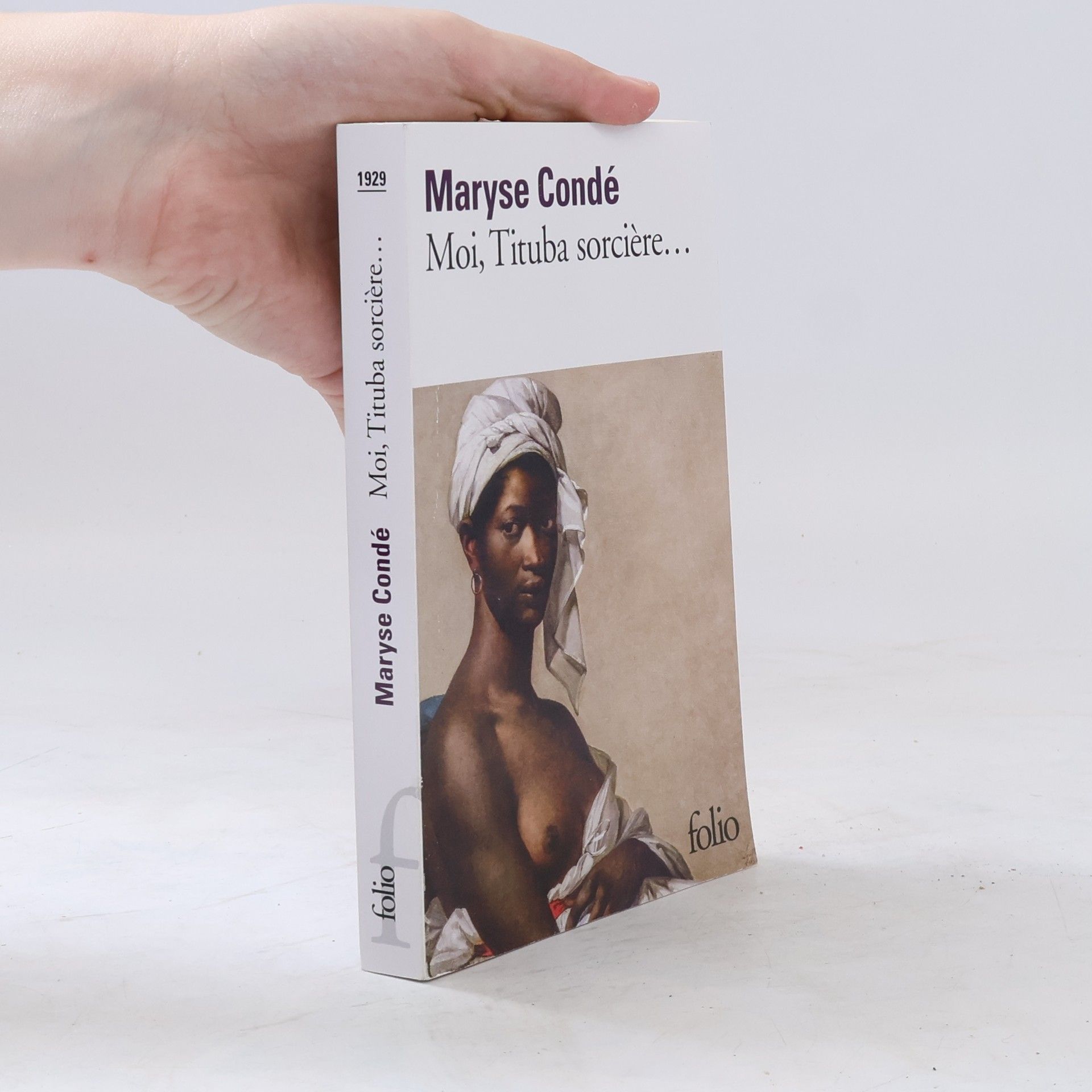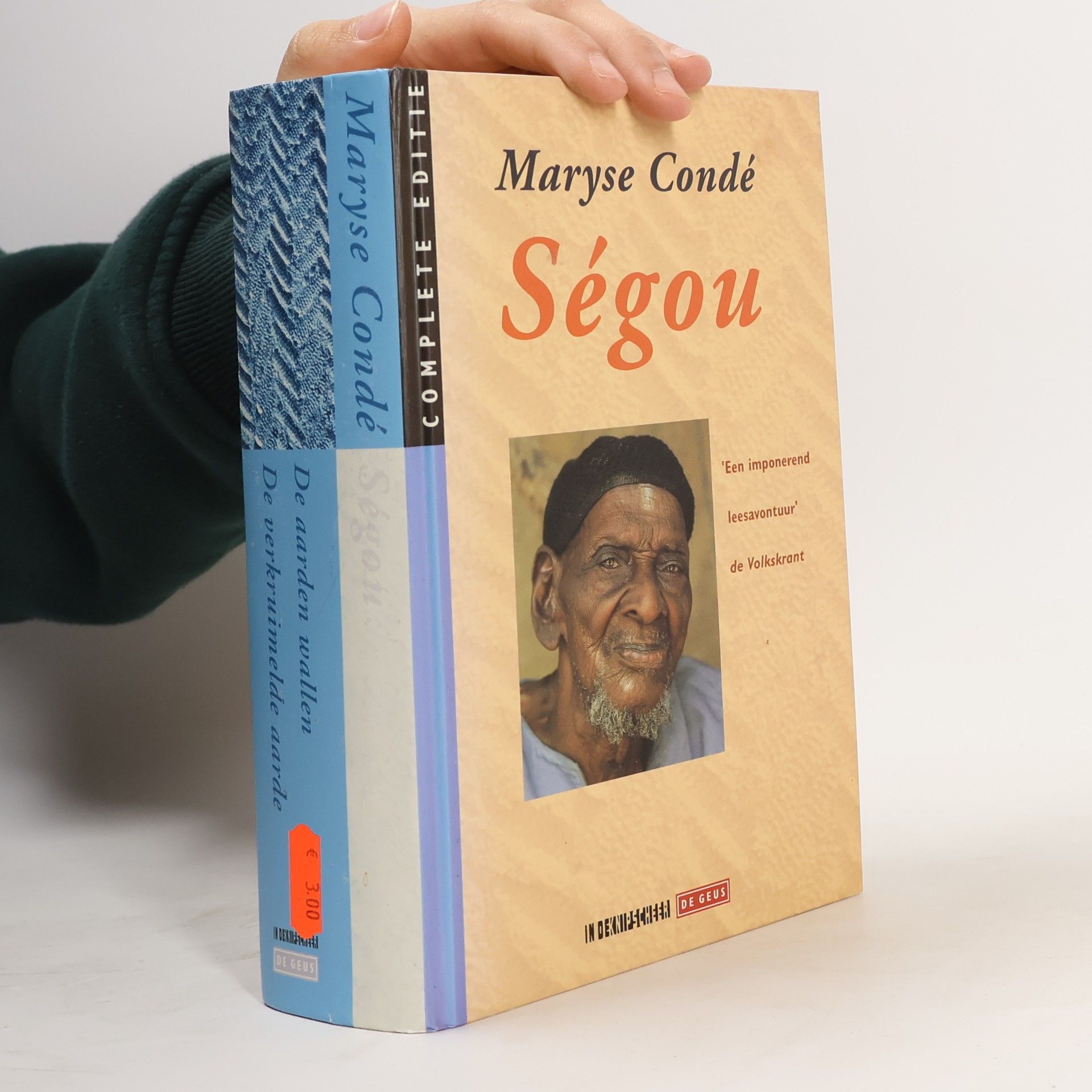Het onwaarschijnlijke en droevige lot van Ivan en Ivana
- 352bladzijden
- 13 uur lezen
nan
Maryse Condé staat bekend om haar historische fictie, die ingaat op complexe thema's als ras, geslacht en cultuur in diverse historische settings. Haar verhalen bieden een uniek perspectief op identiteit en de menselijke ervaring. Naast haar schrijverschap heeft Condé een vooraanstaande academische carrière gehad en Franse literatuur gedoceerd aan prestigieuze universiteiten wereldwijd. Ze staat bekend om haar diepgaande exploratie van postkoloniale realiteiten en de constructie van het zelf.







nan
Een machtig rijk in Noordwest-Afrika wordt met de ondergang bedreigd als de islam en het christendom hun intrede doen. En terwijl de mannen ten overstaan van de grote historische krachten steeds avontuurlijker plannen beramen, trachten de vrouwen de families bijeen te houden en de voortgang van het leven te verzekeren.In De aarden wallen maakt de lezer kennis met Ségou, 'de tuin der lusten' en de hoofdstad van een machtig rijk in Noordwest- Afrika. De burgers genieten van hun voorrechten als heersers over vele volkeren. Totdat rond 1850 vanuit het noorden de roep naar Allah doorklinkt, en zich tevens de eerste blanke voor de poorten van Ségou aandient. De priesters duiden de tekens: niets zal meer zo zijn als het was...In De verkruimelde aarde ontmoet het eens zo machtige Ségou aan de Niger, nu door de twist verdeeld tussen de bekeerlingen van Allah en degenen die de oude tradities eren, de macht van een nieuwe grootheid: de blanken.
Ivan and Ivana are twins with a bond so strong they become afraid of their feelings. As young adults in Paris, Ivana joins the police while Ivan walks the path of radicalisation. Unable to live with or without each other, become perpetrator and victim in a wave of violent attacks. With her most impressive novel to date, this master storyteller offers an impressive picture of a colourful yet turbulent 21st century.
Condé's story is rich and colorful and glorious. It sprawls over continents and centuries to find its way into the reader's heart Maya Angelou
For nearly four decades, Maryse Condé, best known for her novels Segu and Windward Heights, has been at the forefront of French Caribbean literature. In this collection of essays and lectures, written over many years and in response to the challenges posed by a changing world, she reflects on the ideas and histories that have moved her. From the use of French as her literary language--despite its colonial history--to the agonies of the Middle Passage, at the horrors of African dictatorship, and the politically induced poverty of the Caribbean to migration under globalization, Condé casts her unflinching eye over the world which is her inheritance, her burden, and her future. Even while paying homage to her intellectual and literary influences--including Frantz Fanon, Leopold Sedar Senghor, and Aimé Césaire--Condé establishes in these pages the singularity of her vision and the reason for the enormous admiration that her writing has garnered from readers and critics alike.
At the age of seven, Tituba watched as her mother was hanged for daring to wound a plantation owner who tried to rape her. She was raised from then on by Mama Yaya, a gifted woman who shared with her the secrets of healing and magic. But it was Tituba's love of the slave John Indian that led her from safety into slavery, and the bitter, vengeful religion practiced by the good citizens of Salem, Massachusetts. Though protected by the spirits, Tituba could not escape the lies and accusations of that hysterical time.As history and fantasy merge, Maryse Condé, acclaimed author of Tree of Life and Segu, creates the richly imagined life of a fascinating woman.
"Francis Sancher always said he would come to an unnatural end. So when this handsome newcomer to the Guadeloupean village of Rivière au Sel is found dead, face down in the mud, no one is particularly surprised. Loved by some - especially women - and reviled by others, Francis was an enigmatic figure. Where did he come from? What caused his strange nocturnal wanderings? What devils haunted him? As the villagers come to pay their respects, they each reveal another piece of the mystery behind his life and death - and their own buried secrets and stories come to light."--Provided by publisher.
The narrative centers on Dieudonné Sabrina, a young black gardener accused of murdering his wealthy white employer and lover, Loraine. As he seeks refuge on his sailboat, La Belle Créole, the story unfolds through flashbacks during a tumultuous night in Port-Mahault, Guadeloupe. Set against a backdrop of social unrest and labor strikes, the novel explores themes of identity, race, and the uncertain futures of both Dieudonné and the island itself. Condé's work weaves a complex tale of desperation and societal decay.
Babakar is an African doctor living alone until the child Anaïs comes into his life. Forced to abandon his solitude, he takes her to Haiti in search of her family.